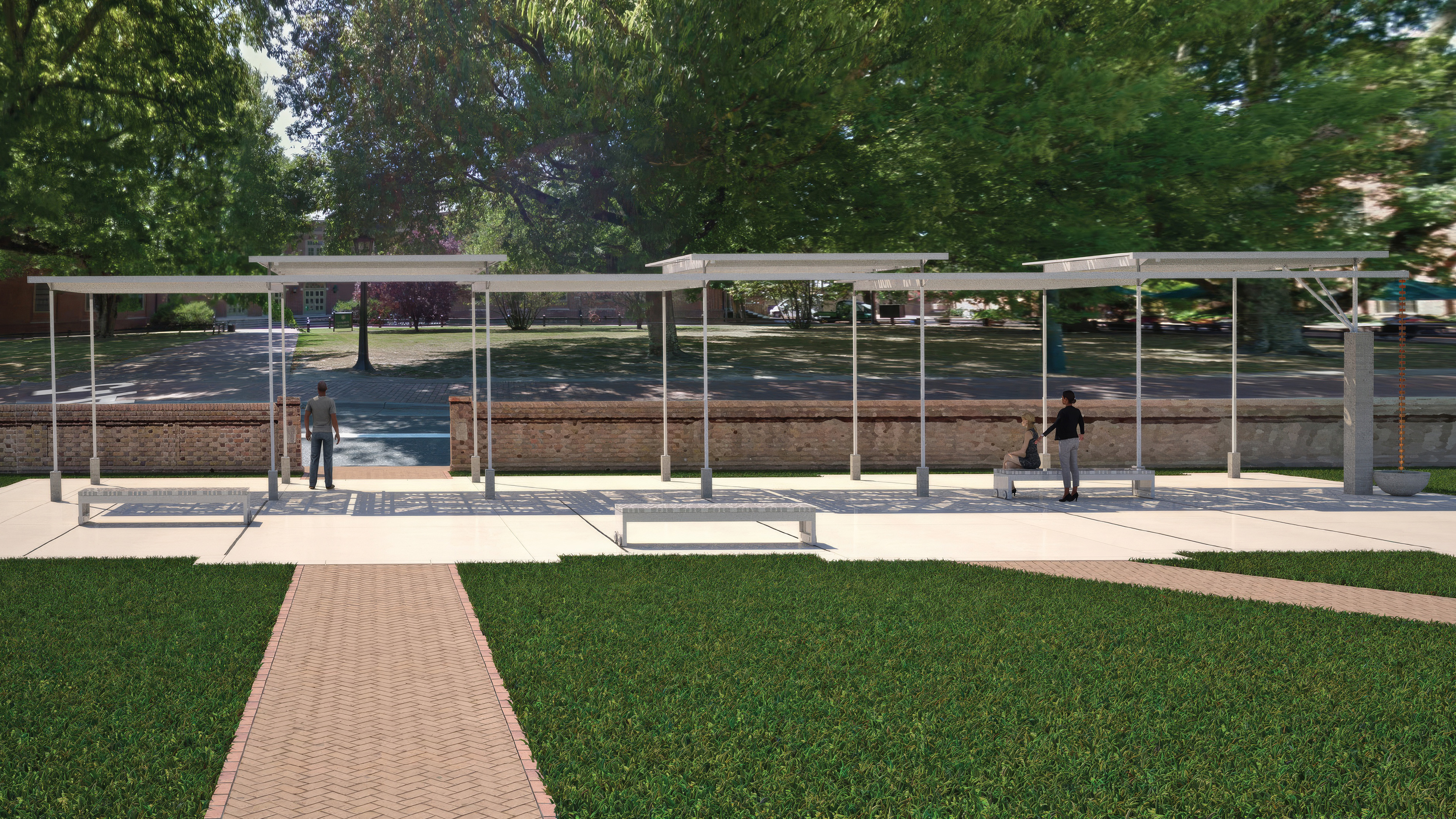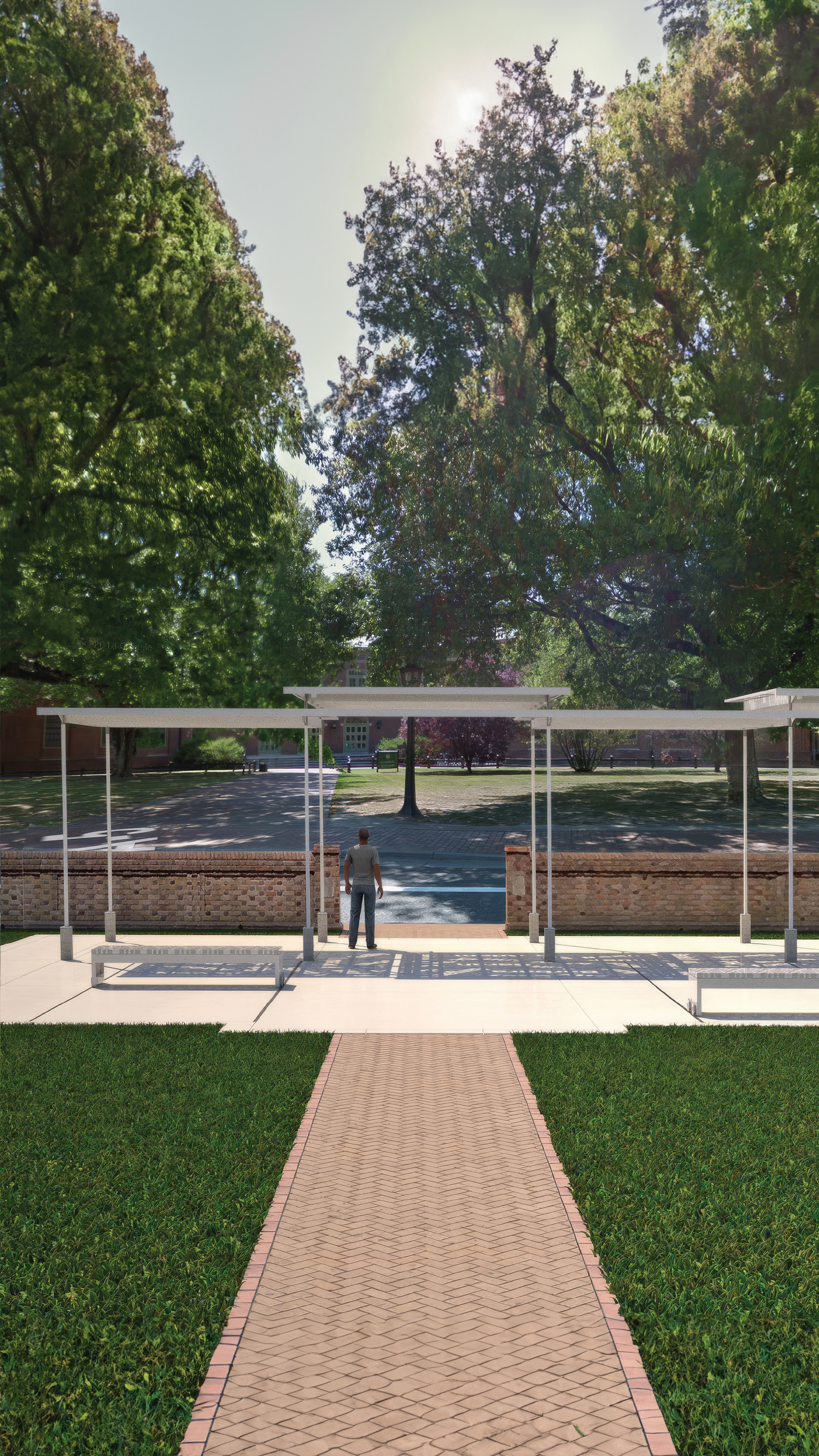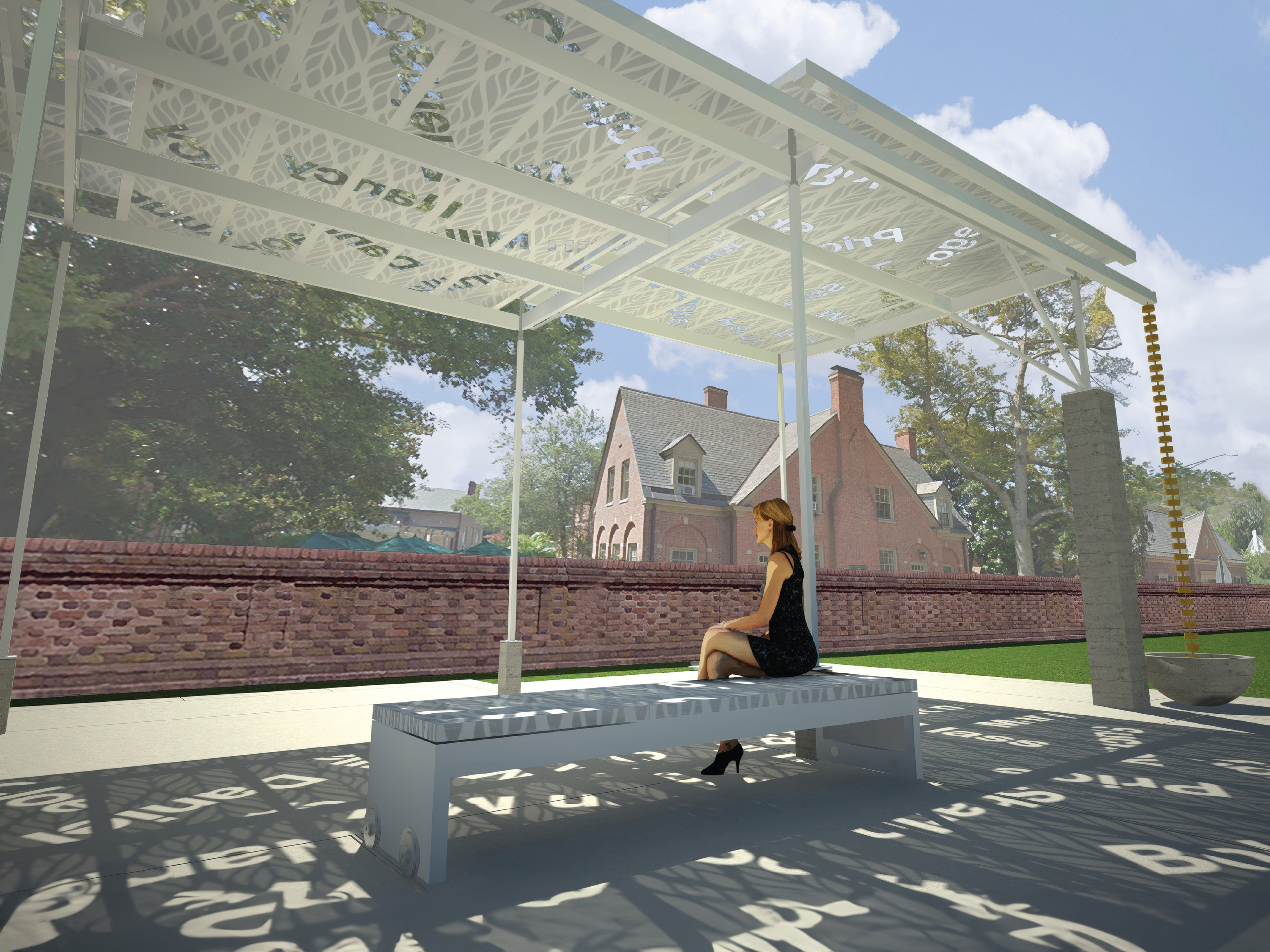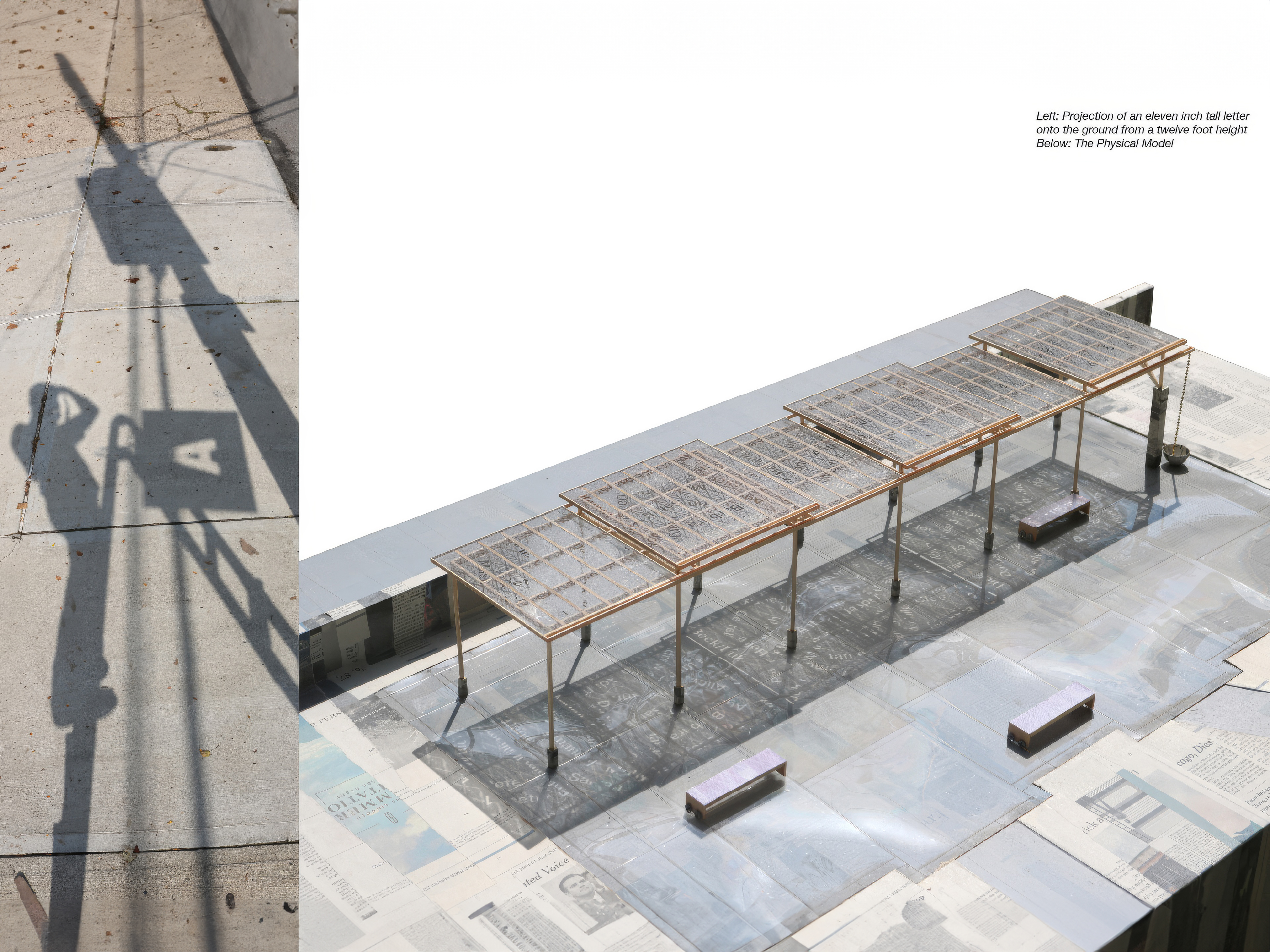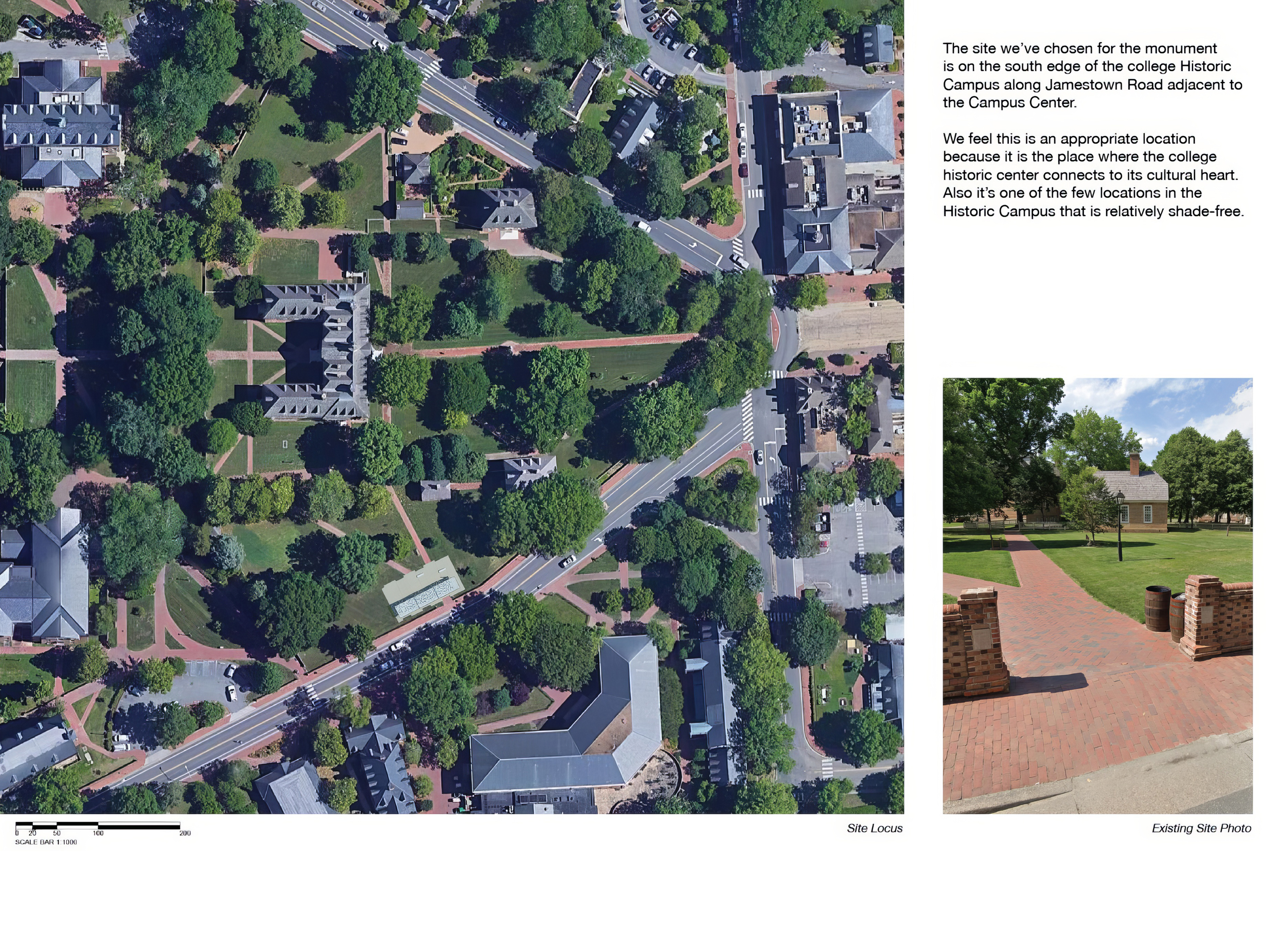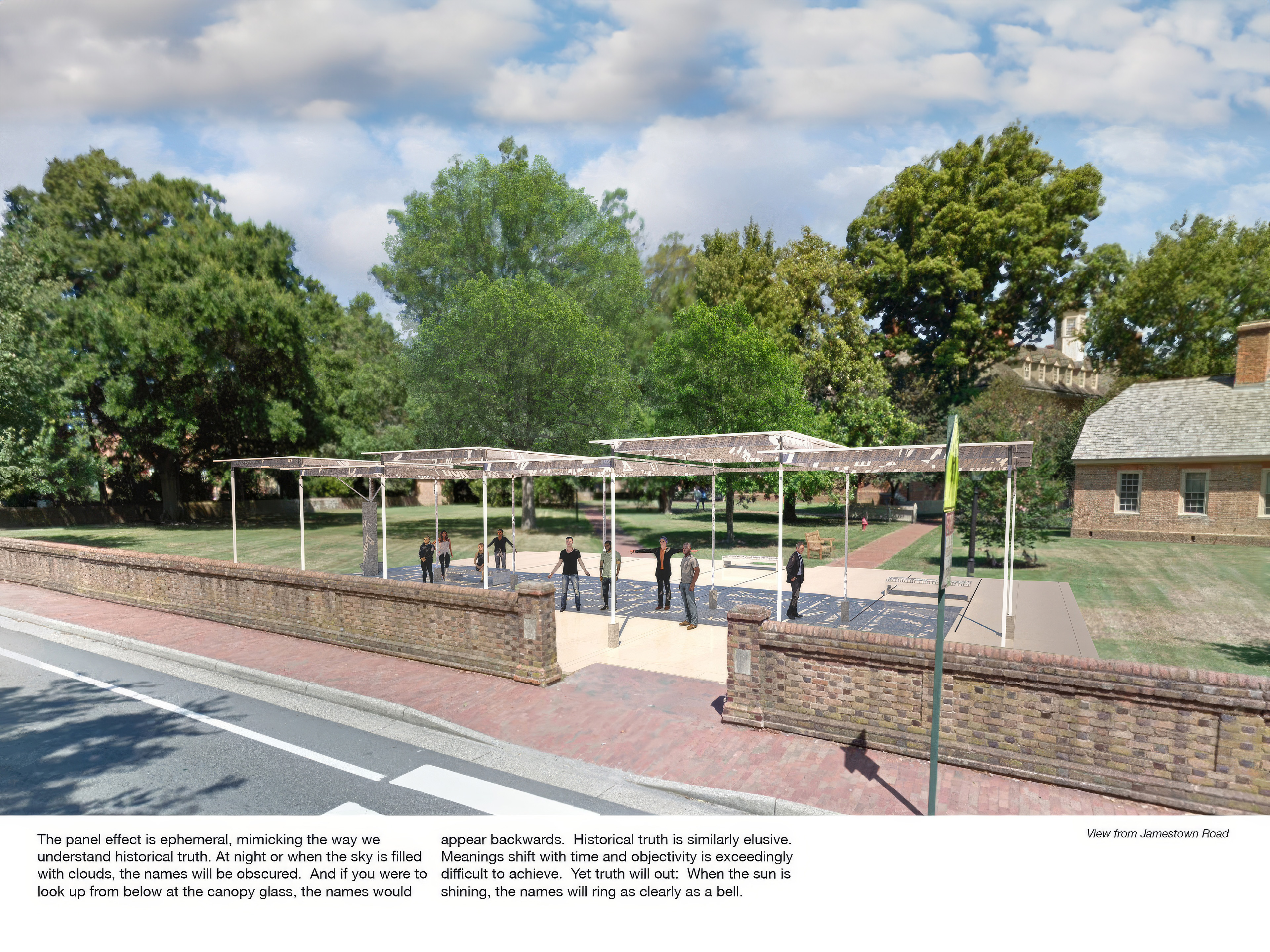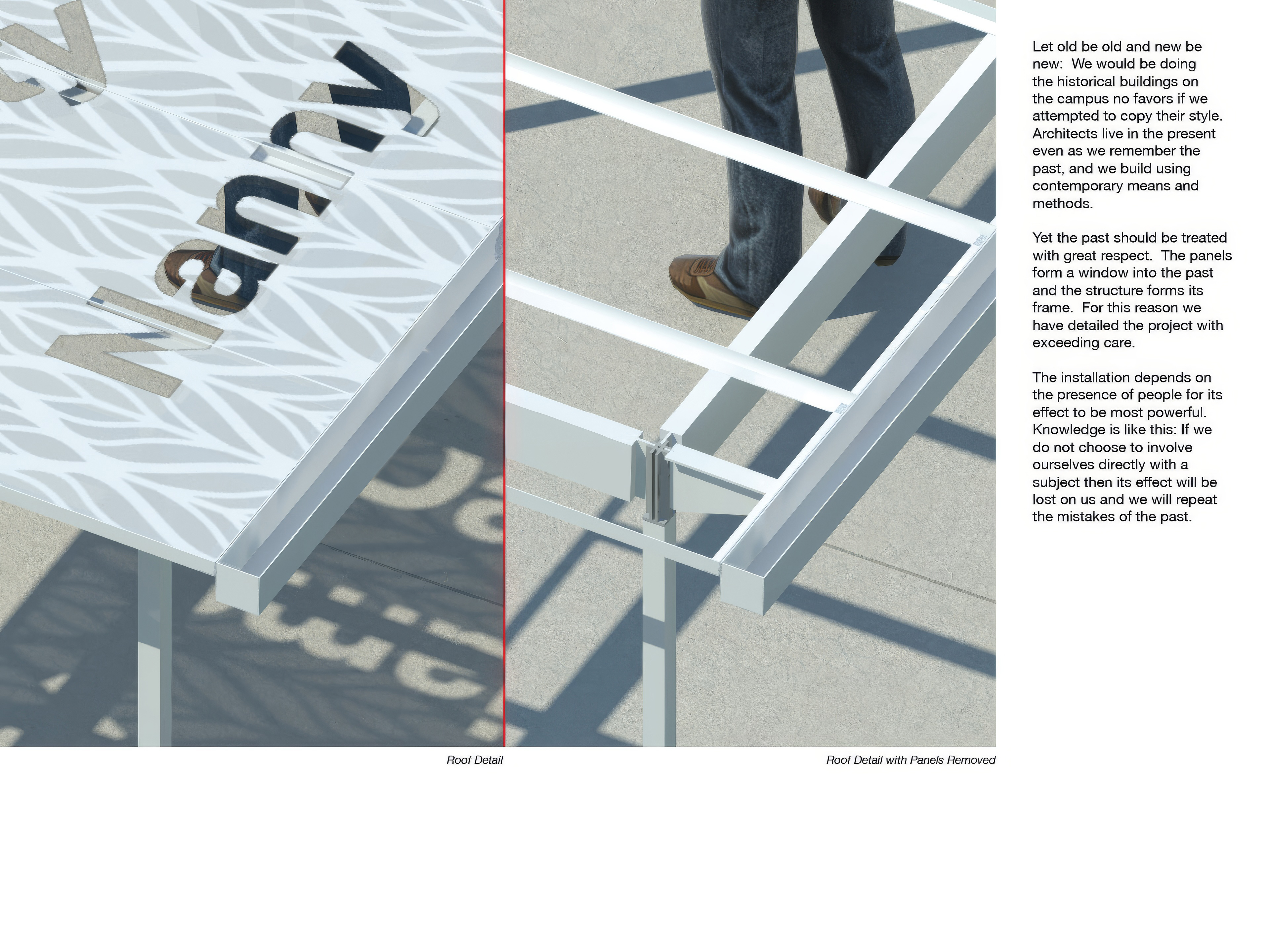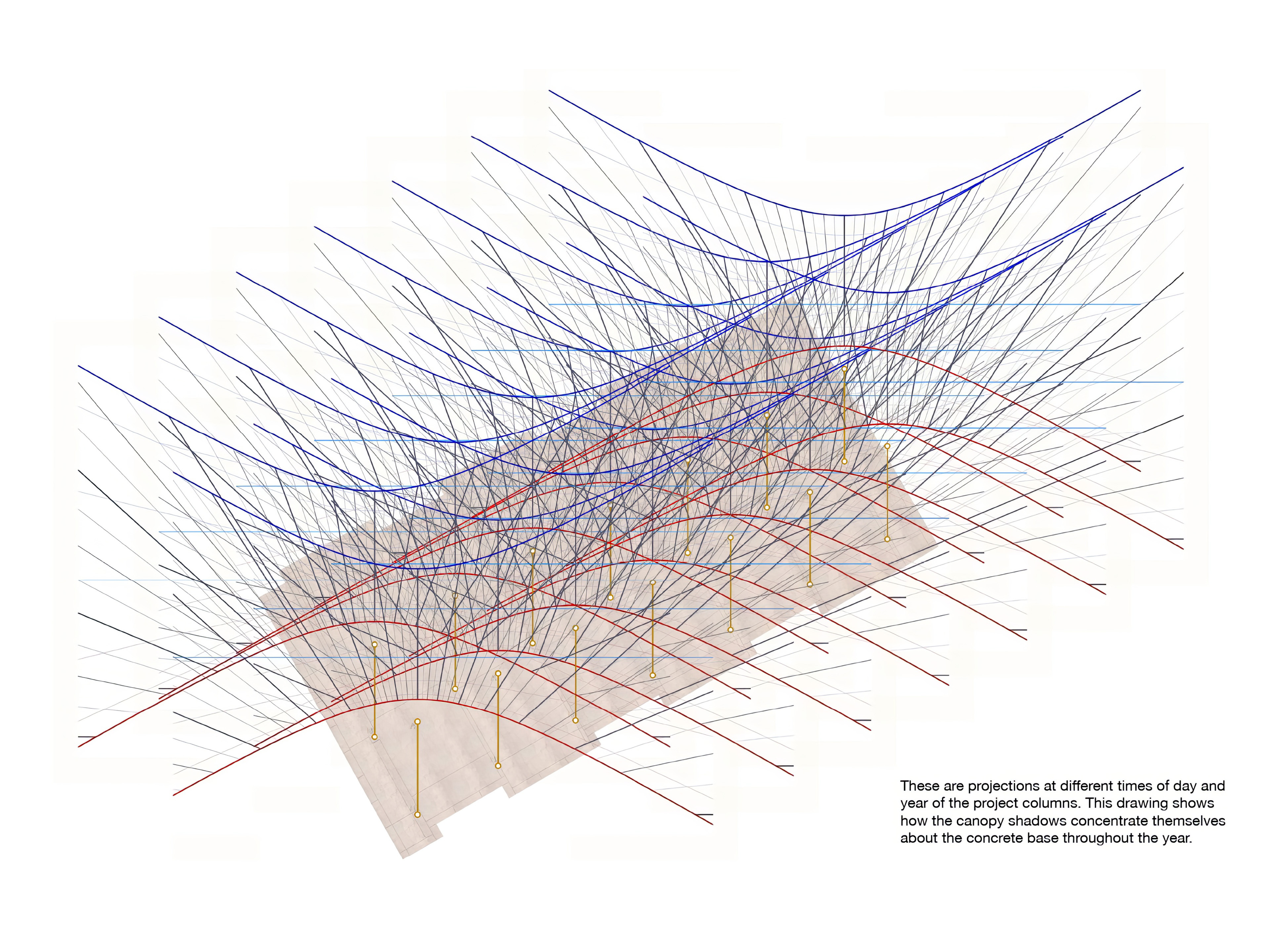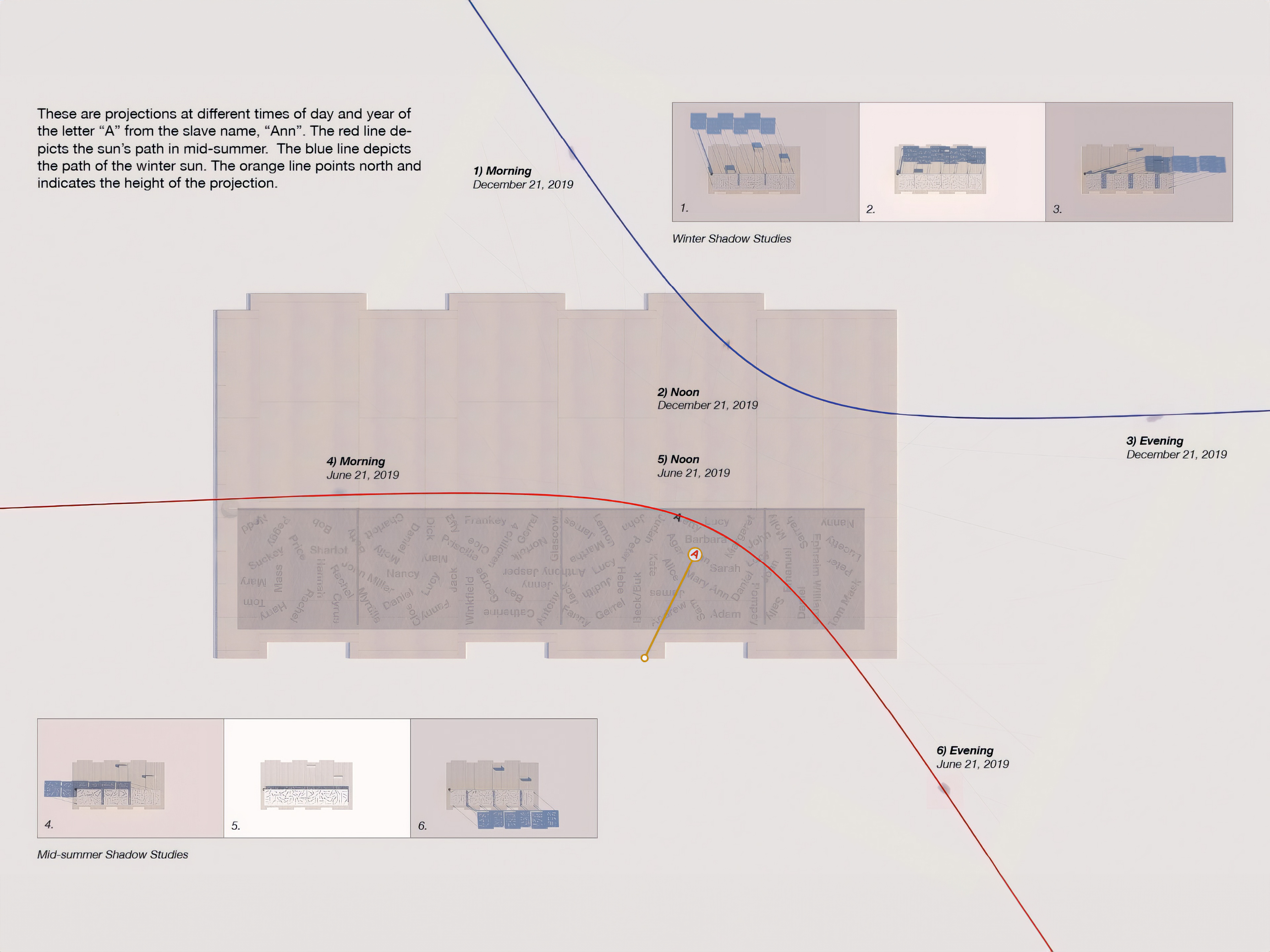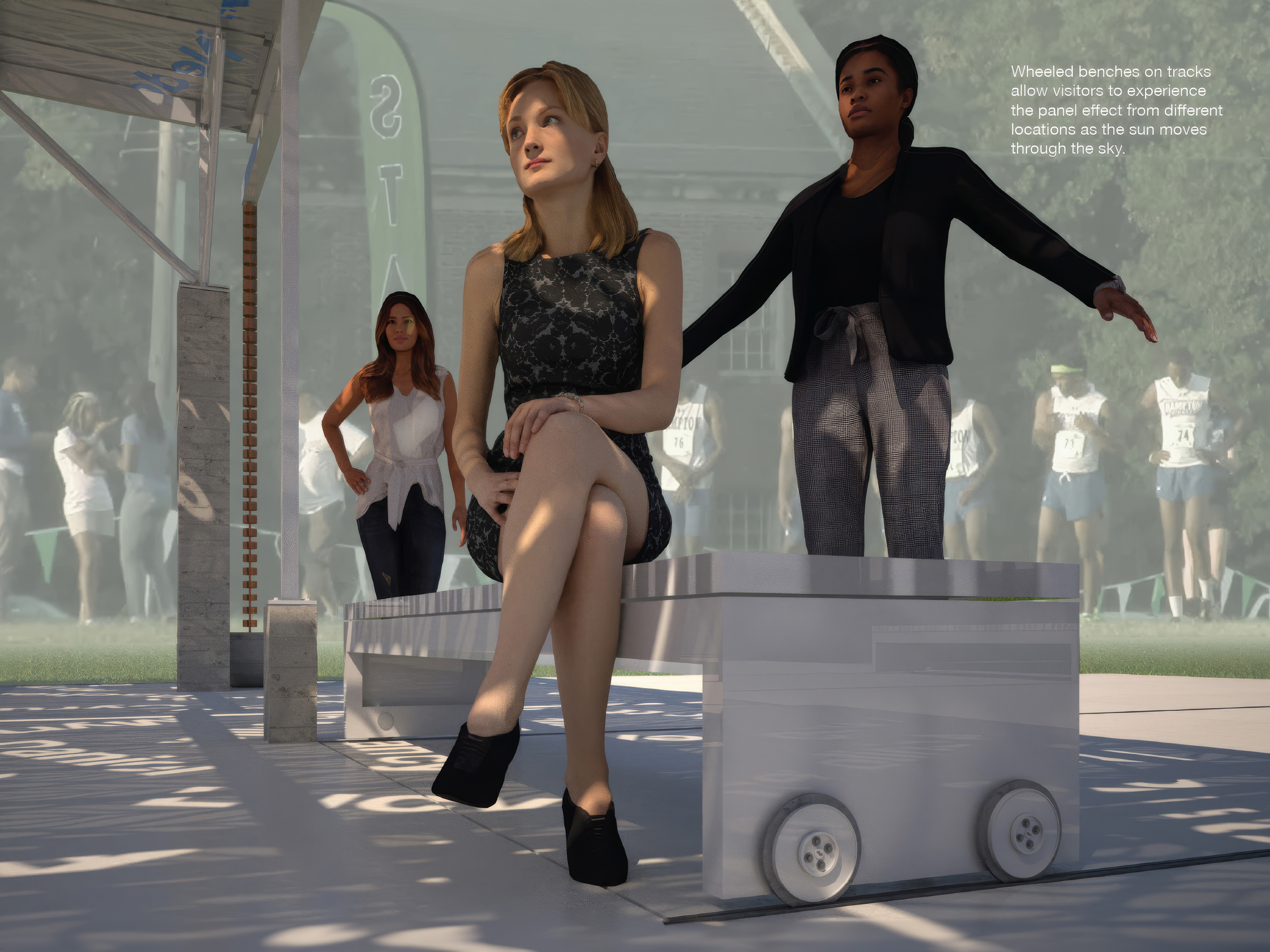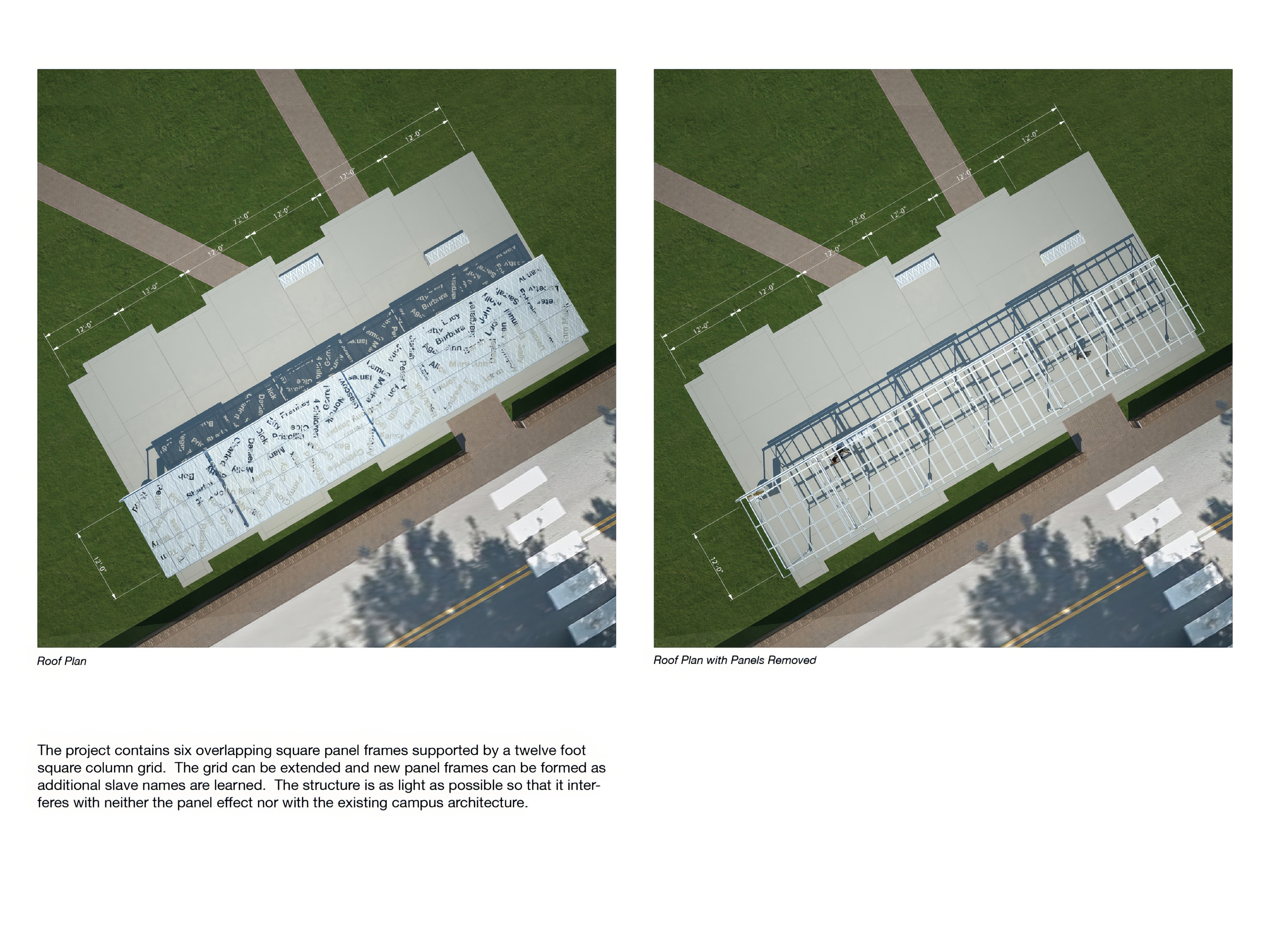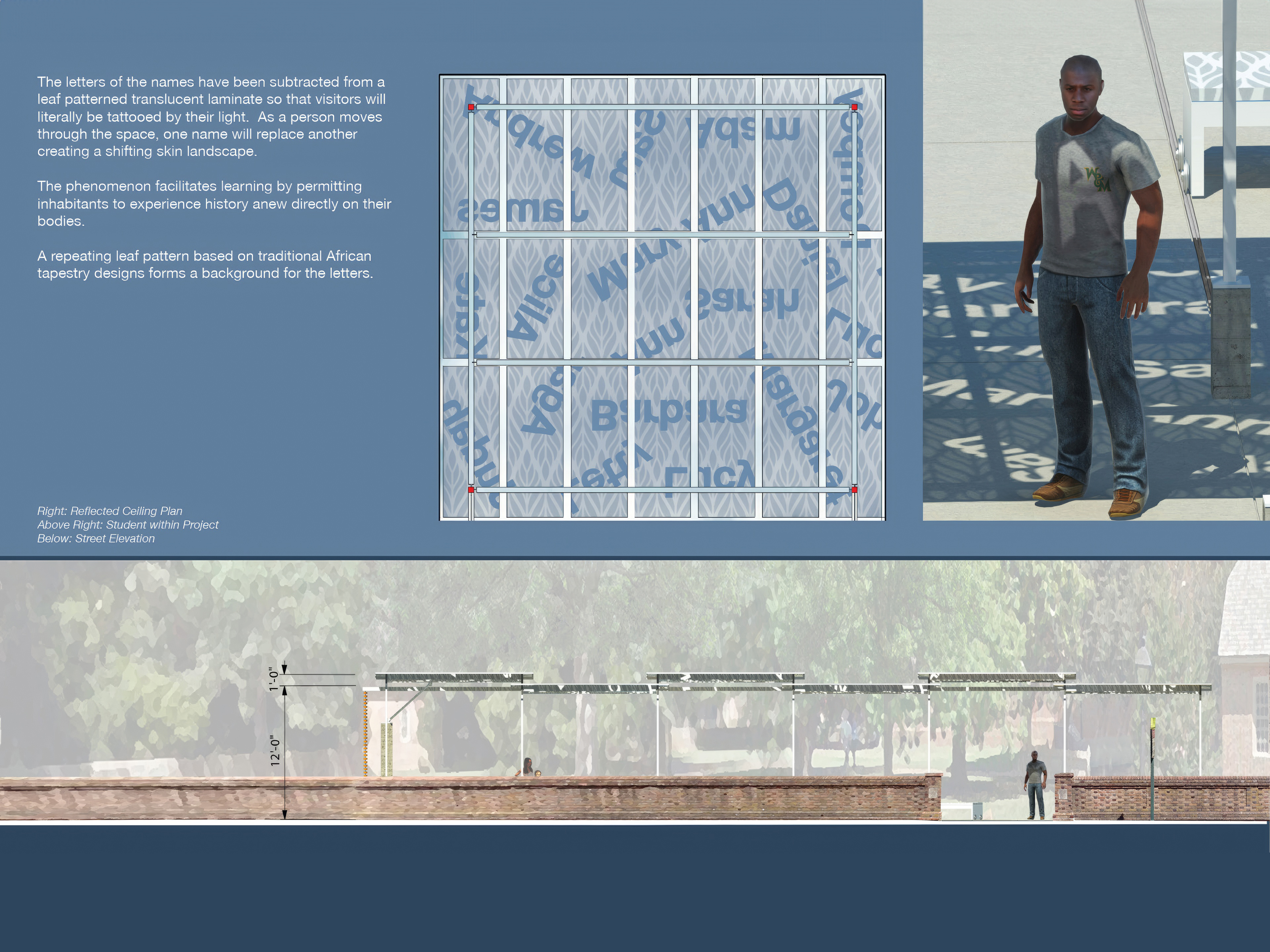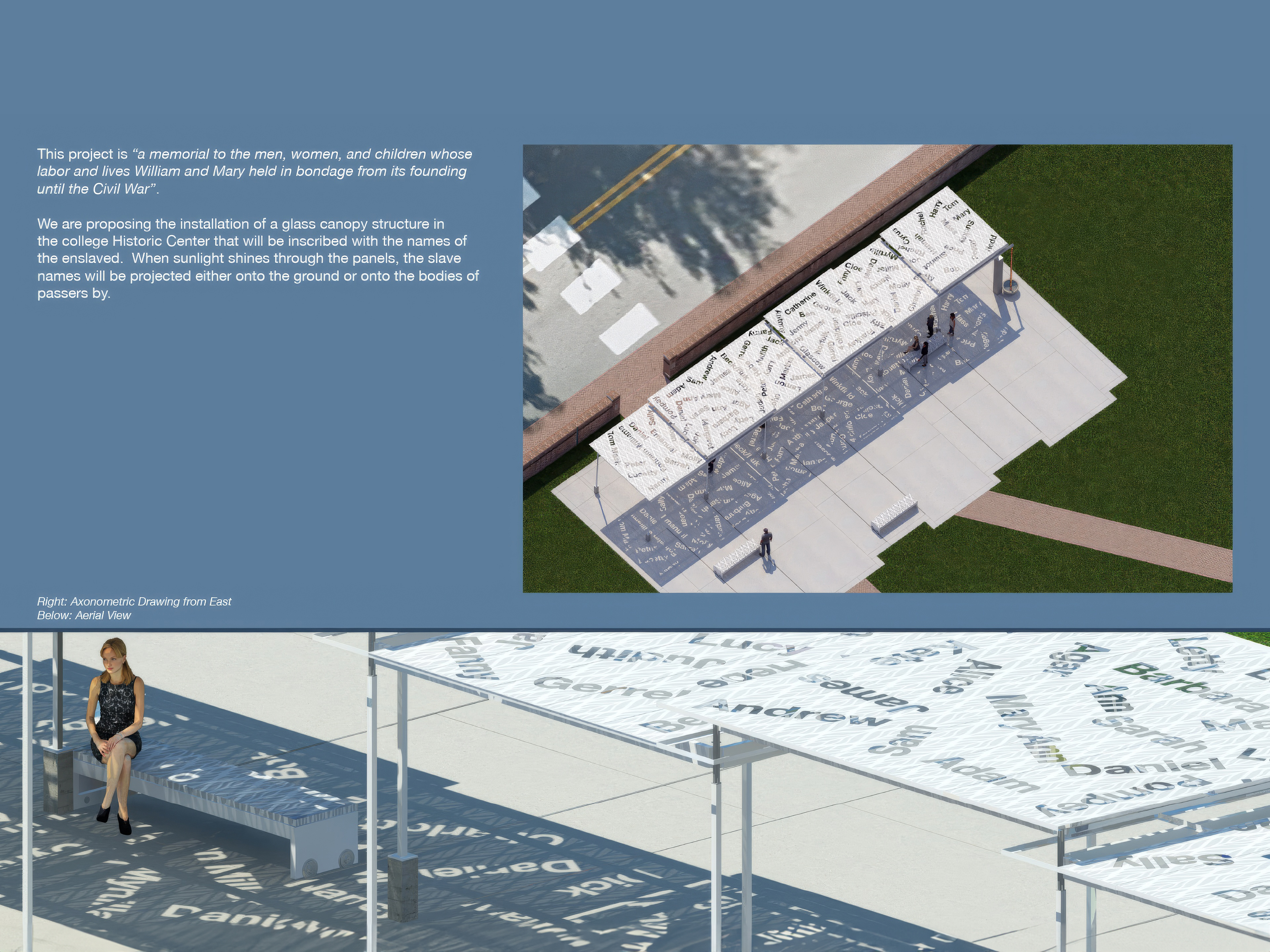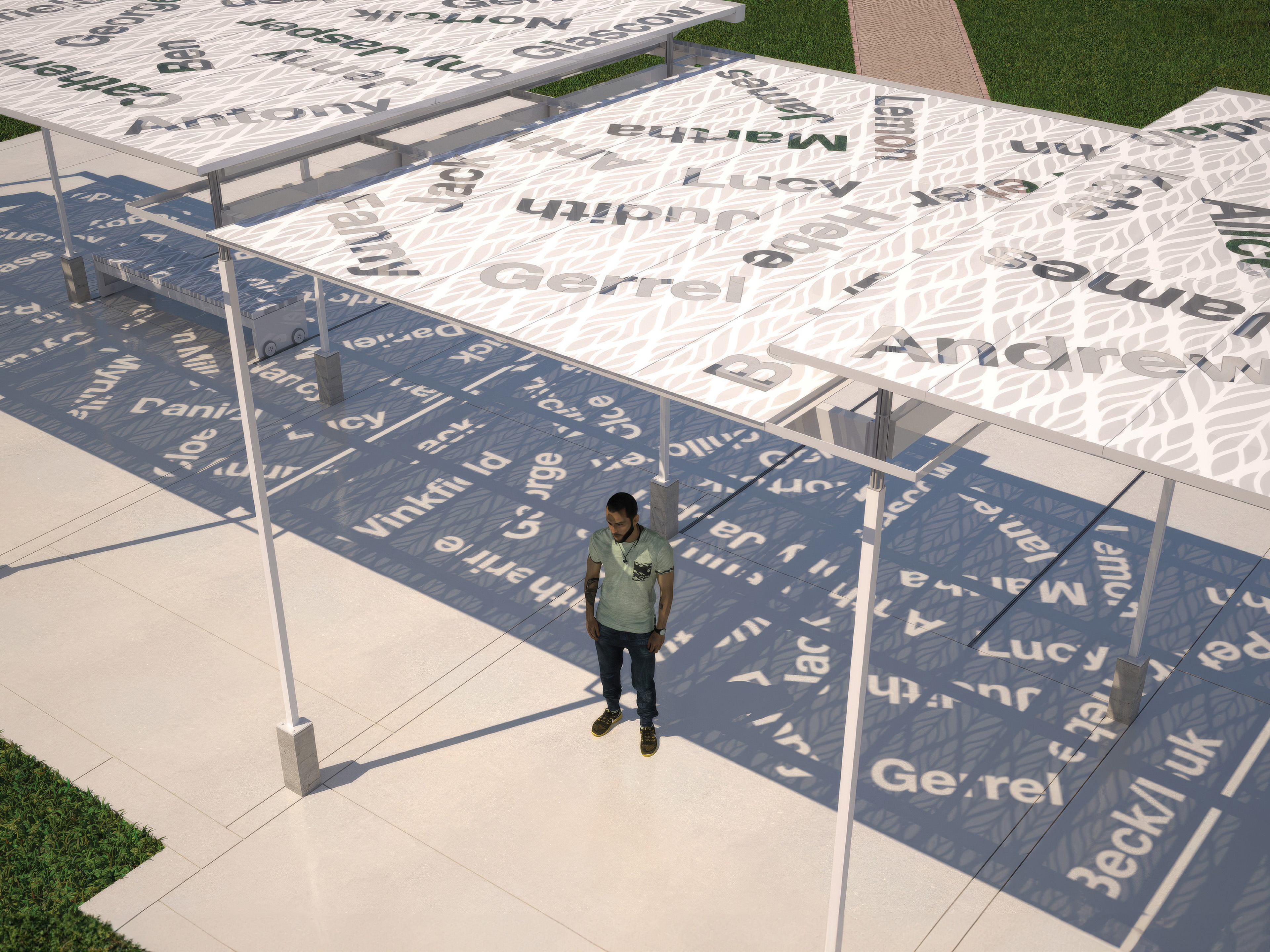William and Mary Memorial
This 2018 architectural competition entry is “a memorial to the men, women, and children whose labor and lives William and Mary held in bondage from its founding until the Civil War”.
We are proposing to install a glass canopy structure in the college historic center that will inscribe the names of the enslaved. When sunlight shines through the panels, the panels will project the names of the enslaved onto the ground or onto the bodies of passers by.
Read More >Visitors will literally be tattooed as the letters of the names are subtracted from a leaf patterned translucent laminate. As a person moves through the space, one name will replace another creating a shifting skin landscape. The William and Mary Memorial facilitates learning by permitting inhabitants to experience history anew directly on their bodies.
The site we’ve chosen is located on the south edge of the college Historic Campus along Jamestown Road adjacent to the Campus Center. We feel this is an appropriate location for the monument. It is the place where the college historic center connects to its cultural heart. It’s also one of the few locations in the Historic Campus that is relatively shade-free. The project contains six overlapping square panel frames supported by a twelve foot square column grid. As we learn the names of the enslaved, we can extend the grid and form new panel frames. The structure is as light as possible so that it interferes with neither the panel effect nor with the existing campus architecture. Wheeled benches on tracks allow visitors to experience the panel effect from different locations as the sun moves through the sky.
Let old be old and new be new. We would be doing the historical buildings on the campus no favors if we attempted to copy their style. Architects live in the present even as we remember the past, and we build using contemporary means and methods. Even so, designers should treat the past with great respect. The panels form a window into the past and the structure forms its frame. For this reason we have detailed the project with exceeding care.
The installation depends on the presence of people for its effect to be most powerful. This is how knowledge is: if we do not choose to involve ourselves directly with a subject, then we will lose its effect and repeat the mistakes of the past. The panel effect is ephemeral, mimicking the way we understand historical truth. The names will be obscured at night or when the sky is filled with clouds. And if you were to look up from below at the canopy glass, the names would appear backwards. Historical truth is similarly elusive. Meanings shift with time and objectivity is exceedingly difficult to achieve. Yet truth will out: When the sun is shining, the names will ring as clearly as a bell.
For more institutional projects by Fisher ARCHitecture, check out the Warhol-Homewood and West End Pedestrian Bridge.
